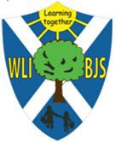Music Intent Statement
Intent
Music is a universal language that embodies one of the highest forms of creativity and promotes emotional wellbeing through listening, singing, playing, composing, evaluating and analysing.
At BJS we want our children to enjoy music, fostering a life-long love and appreciation of music. We want them to be creative and able to organise and explain their musical thinking. They will make music by performing and composing; they will listen and respond with an informed ear to the music of others, including great composers from a range of historical periods, genres, styles, cultures and traditions. We wish them to understand how music can represent emotions, express thoughts and to recognise the importance of music in enhancing dance, drama, film and TV. We will encourage our pupils to develop an aural memory. They will learn and use the technical vocabulary of music (e.g. pulse, rhythm, pitch, dynamic etc.); learn to record music using standard and non-standard notation; and, where appropriate, to employ music technology. By singing and playing together and as soloists, they will be helped to develop concentration, memory, self-reliance, confidence and a sense of teamwork. All children will have the opportunity to learn an orchestral instrument for a short time and to take this further if they wish. They will also have opportunities to take part in performances and concerts both within school, the community and with other schools.
Implementation
Music teaching at BJS delivers the requirements of the National Curriculum using the Charanga Musical School Scheme which provides teachers with practical and engaging week-by-week lesson support. It is ideal for specialist and non-specialist teachers alike and provides units of work comprising the strands of musical learning: listening and appraising, musical activities and tasks, singing and playing instruments, improvisation and composition, performing and sharing. It enables children to understand musical concepts through a repetition-based approach to learning where the same musical concept is explored through different musical activities and thereby building a more secure, deeper understanding and mastery of musical skills. All musical learning in this scheme is centred on the core principles of music – the Interrelated Dimensions of Music: pulse, rhythm, pitch, tempo, dynamics, timbre, texture, structure and notation. In Year 6, we also use the ‘BBC Ten Pieces’ to study a selection of well-known and more modern composers to further illustrate the historical periods and styles of West European Music. These studies are also centred on the core Interrelated Dimensions of Music and include listening and appraising, creating and composing, performing and sharing.
In addition to our music lessons, every assembly starts by listening to recorded music whilst looking at key information about the piece and thinking about a point of listening focus. Each piece is introduced at the start of the week with additional information provided and the listening focus discussed.
Currently, all pupils in Year 4 are given violin lessons during the autumn term, provided by an experienced BJS teacher with violin expertise. Those pupils who wish to take instrumental tuition further receive lessons through the North Somerset Music Service who also provide a range of instrumental, percussive and vocal lessons across the school.
Our pupils are encouraged to perform in groups or as soloists in their class, at assemblies to parents and the school, in our annual summer concert to parents, in the community at school fairs and at church celebrations and inter-school concerts and performances, to which parents are invited.
Impact
Our pupils are enthusiastic about music and gain pleasure from it by being competent performers and composers. They are able to listen to music with critical discernment and express reasoned opinions using musical terminology accurately, appropriately and effectively. They know how music is constructed and how it is used to create and respond to moods and emotions. Music enhances our pupils’ creativity, imagination, concentration and memory. They will come to appreciate different musical traditions and genres and that music is integral to other art forms. They will gain an understanding of musical provenance - the historical and social context of music and develop an awareness that music is culturally based and so respect and value that of a range of cultures. They take responsibility for their own performance and respect the roles of other performers, developing a sense of teamwork and leadership. Pupil’s achievements are assessed based on progression through the strands and expectations of the National Curriculum for Music.
Music is valued and celebrated at BJS not only for the dedication and resilience it requires but also for its very core purposes: to excite, to intrigue, to evoke thoughts, feelings and reactions and – most importantly – to bring joy to our lives.
